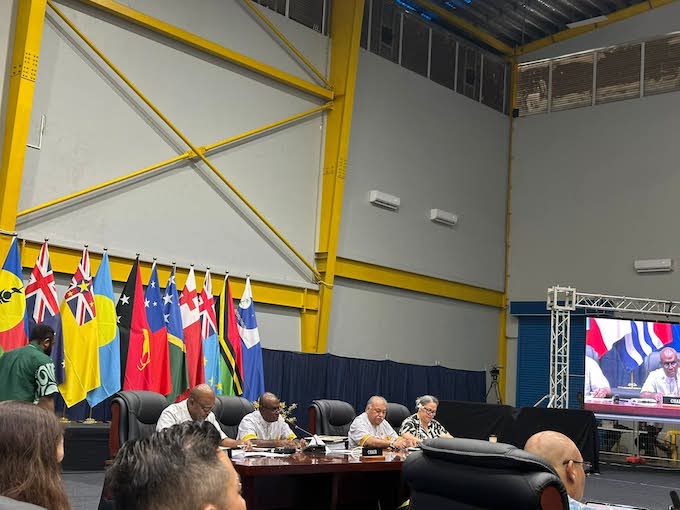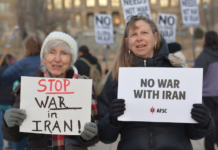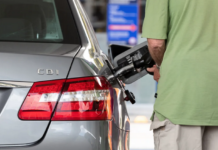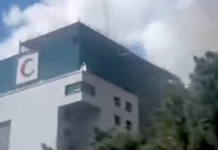
ANALYSIS: By Ali Mirin
When the Pacific Islands Forum concluded in Honiara last month, leaders pledged regional unity under the motto “Iumi Tugeda” — “We are Together”.
Eighteen Pacific heads of government reached agreements on climate resilience and nuclear-free oceans.
They signed the Pacific Resilience Facility treaty and endorsed Australia’s proposal to jointly host the 2026 COP31 climate summit.
- READ MORE: ULMWP alleges 15 civilians killed in West Papua military operation
- Other West Papua reports
However, the region’s most urgent crisis was once again given only formulaic attention. West Papua, where Indonesian military operations continue to displace and replace tens of thousands of Papuans, was given just one predictable paragraph in the final communiqué.
This reaffirmed Indonesia’s sovereignty, recalled an invitation made six years ago for the UN High Commissioner to visit, and vaguely mentioned a possible leaders’ mission in 2026.
For the Papuan people, who have been waiting for more than half a century to exercise their right to self-determination, this represented no progress. It confirmed a decades-long pattern of acknowledging Jakarta’s tight grip, expressing polite concern and postponing action.
A stolen independence
The crisis in West Papua stems from its unique place in Pacific history. In 1961, the West Papuans established the New Guinea Council, adopted a national anthem and raised the Morning Star flag — years before Samoa gained independence in 1962 and Fiji in 1970.
Papuan delegates had also helped to launch the South Pacific Conference in 1950, which would become the Pacific Islands Forum.
However, this path was abruptly reversed. Under pressure from Cold War currents, the Netherlands transferred administration to Indonesia.
The promised plebiscite was replaced by the 1969 Act of Free Choice, in which 1026 hand-picked Papuans were forced to vote for integration under military coercion.
Despite protests, the UN endorsed the result. West Papua was the first Pacific nation to have its recognised independence reversed during decolonisation.
Systematic blockade
Since the early 1990s, UN officials have been seeking access to West Papua. However, the Indonesians have imposed a complete block on any international institutions and news media entering.
Between 2012 and 2022, multiple UN high commissioners and special rapporteurs requested visits. All were denied.
More than 100 UN member states have publicly supported these requests. It has never occurred. Regional organisations ranging from the Pacific Islands Forum to the Organisation of African, Caribbean and Pacific States have made identical demands. Jakarta ignores them all.
International media outlets face the same barriers. Despite former Indonesian President Joko Widodo’s 2015 declaration that foreign journalists could enter Papua freely, visa restrictions and surveillance have kept the province as among the world’s least reported conflicts.
During the protests in 2019, Indonesia shut down internet access across the territory.
Indonesia calculates that it can ignore international opinion because key partners treat West Papua as a low priority.
Australia and New Zealand balance occasional concern with deeper trade ties. The US and China prioritise strategic interests.
Even during his recent visit to Papua New Guinea, UN Secretary-General António Guterres made no mention of West Papua, despite the conflict lying just across the border.
Bougainville vs West Papua
The Pacific’s inaction is particularly striking when compared to Bougainville. Like West Papua, Bougainville endured a brutal conflict.
Unlike West Papua, however, Bougainville received genuine international support for self-determination. Under UN oversight, Bougainville’s 2019 referendum allowed free voting, with 98 per cent choosing independence.
Today, Bougainville and Papua New Guinea are negotiating a peaceful transition to sovereignty.
West Papua has been denied even this initial step. There is no credible mediation. There is no international accompaniment. There is no timetable for a political solution.
The price of hypocrisy
Pacific leaders are confronted with a fundamental contradiction. They demand bold global action on climate justice, yet turn a blind eye to political injustice on their doorstep.
The ban on raising the Morning Star flag in Honiara, reportedly under pressure from Indonesia, has highlighted this hypocrisy.
The flag symbolises the right of West Papuans to exist as a nation. Prohibiting it at a meeting celebrating regional solidarity revealed the extent of external influence in Pacific decision-making.
This selective solidarity comes at a high cost. It undermines the Pacific’s credibility as a global conscience on climate change and decolonisation.
It leaves Papuans trapped in what they describe as a “slow-motion genocide”. Between 2018 and 2022, an estimated 60,000 to 100,000 people were displaced by Indonesian military operations.
In 2024, Human Rights Watch reported that violence had reached levels unseen in decades.
Breaking the pattern
The Forum could end this cycle by taking practical steps. For example, it could set a deadline of 12 months for an Indonesia-UN agreement on unrestricted access to West Papua.
If no agreement is reached, the Forum could conduct its own investigation with the Melanesian Spearhead Group. It could also make regional programmes contingent on human rights benchmarks, including ensuring humanitarian access and ending internet shutdowns.
Such measures would not breach the Forum’s charter. They would align Pacific diplomacy with the proclaimed values of dignity and solidarity. They would demonstrate that regional unity extends beyond mere rhetoric.
The test of history
The people of West Papua were among the first in Oceania to resist colonial expansion and to form a modern government. They were also the first to experience the reversal of recognised sovereignty.
Until Pacific leaders find the courage to confront Indonesian obstruction and insist on genuine West Papuan self-determination, “Iumi Tugeda” will remain a beautiful slogan shadowed by betrayal.
The region’s moral authority does not depend on eloquence regarding the climate fund, but on whether it confronts its deepest wound.
Any claim to a unified Blue Pacific identity will remain incomplete until the issue of West Papua’s denied independence is finally addressed.
Ali Mirin is a West Papuan academic and writer from the Kimyal tribe of the highlands bordering the Star Mountain region of Papua New Guinea. He holds a Master of Arts in international relations from Flinders University – Australia.












































